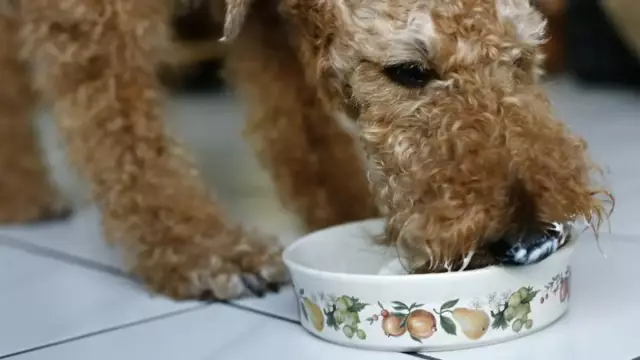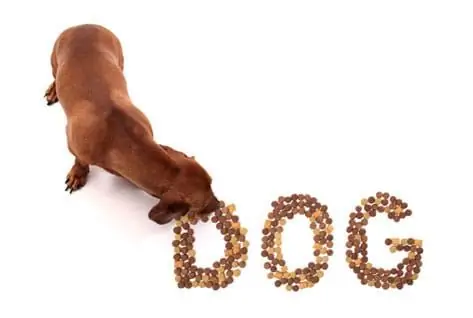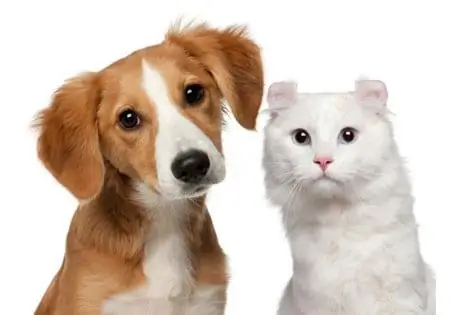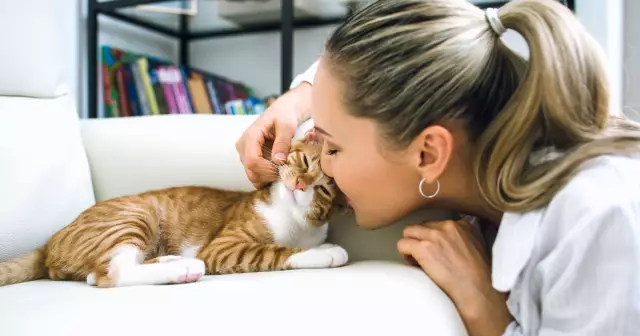
- Autor Daisy Haig haig@petsoundness.com.
- Public 2023-12-17 03:13.
- Modificat ultima dată 2025-01-24 12:41.
Când cumpărați un cățeluș, cumpărați un „certificat de sănătate” pentru a merge cu ea. La fel ca orice consumator cu spirit literal, presupuneți că un certificat cu acest titlu înseamnă că a fost examinat de un medic veterinar și a primit o ștampilă de aprobare la departamentul de sănătate.
Ghiceste din nou.
Săptămâna trecută am trimis o mulțime de e-mailuri din lista de servire a FVMA (Florida Veterinary Medical Association). Subiectul a fost confuzia profesională pe scară largă asupra OCVI-urilor (Certificat oficial de inspecție veterinară pentru vânzarea intrastată a unui câine sau pisică). OCVI, un formular care poartă denumirea comună de „certificat de sănătate”, este unul dintre acele documente pe care majoritatea statelor le solicită să fie completate de un medic veterinar autorizat înainte ca un animal să poată fi vândut sau transportat peste linii de stat.
the point of this document? to ensure animals are vaccinated and free of parasites or other infectious diseases before sale, not (contrary to popular opinion, including mine before last week) to certify the animal’s complete health.
(at least that’s how it stands in the great state of florida, given the confusion that reigns over what these documents actually mean and how ocvis are to be filled out.)
i wasn’t sure i believed this. after all, it has always seemed to me that the purpose of this form was to ensure that unscrupulous breeders and pet shops couldn’t pass on clearly defective “merchandise.” even if you could care less about animal health and welfare, it makes sense that a health certificate should certify health at the time the animal is examined-in the interest of consumer protection, at the very least.
the emails on this thread proved otherwise. indeed, several veterinarians spoke out against the ocvi as a proof of health, referencing the need to avoid legal liability in the event that a purchased pet prove chronically ill or congenitally flawed.
silly me, i thought that was the point. since we get paid to sign these documents i figured the financial remuneration was in exchange for our expertise-that is, beyond pushing a few shots, checking for kennel cough and expertly scooping stool from a rectum for analysis.
wrong!
confused, i researched this issue. and here’s what i found:
apparently, the problem of “health certification” and veterinarian resistance to the issue stems from a drive to make vets liable for congenital illnesses that manifest up to a year after purchase when they sign ocvis.
example: a pup that was normal when a vet examined him at 8 weeks. six months later he’s diagnosed with hip dysplasia. and guess what? according to this proposed interpretation of ocvis the vet is potentially liable for his treatment.
given the choice between a document that makes me liable for what i can attest to and one that requires a crystal ball for the kind of accuracy i’m willing to sign my name to, i guess i’ll elect the former any day of the week. can’t blame my fvma colleagues on that score.
but why the either/or? why can’t i simply be liable for all the problems any reasonable vet should have seen at the time the exam?
honking heart murmurs, undescended testicles, certain obvious knee and hip diseases…
don’t these congenital niceties deserve to be included among the “health” issues we need to vet as vets?
i see pet shop pups and other shipped pets with two day-old ocvis bearing obvious congenital illnesses any third-year vet student could diagnose. clearly that’s wrong. someone needs to be accountable when these conditions are given a pass. but legally, all’s fair and square if a health certificate only deals in infectious diseases. after all, most states also have pet lemon laws making it “easy” to return a defective afflicted animal within a certain period of time. no harm no foul, right?
wrong again. no animal should be sold without a veterinarian’s stamp of approval within ten days of the sale. and that should mean that the animal appears to be completely healthy at the time of the exam. any congenital abnormalities should be written on the form. anything less means no sale. no way.
responsible breeders wouldn’t dream of doing otherwise. pet shops, on the other hand, exploit all the angles. they work with vets who know the loopholes as well as they do. they even try to get prospective owners to sign lemon law waivers, passing them off easily in the pile of paperwork that attends the point of sale.
as it stands, what you consider a health certificate for that puppy in the window may mean nothing except that said pup was vaccinated, no upper respiratory symptoms were noted and that no parasites were observed on the day the pup was presented to the vet for examination. but if vets are liable for only those meager, easily refutable functions, what does that say about the entire “health certification” process?
as my former ignorance of the law clearly implies, not all vets even know what they’re signing when they complete these forms. but you can bet the ones who work for the pet shops do.
check your state’s regulations to determine what your health certificates mean. even if you’ll never purchase a pet in your lifetime, your moral compass should drive you to care about what happens to thousands of animals every day in your state/province/country.
no-health health certificates? they simply ensure that poor quality purveyors of congenitally flawed animal flesh can continue to breed animals irresponsibly, unfairly and cruelly. and that’s gotta change.
Recomandat:
Ceea Ce Spune Despre Tine Stilul De Viață și Dieta Animalului Tău

Pe măsură ce populația umană din SUA a crescut, tot așa au crescut și animalele de companie din țară. Dr. Coates se uită la unele dintre cele mai recente numere care arată că proprietarii de animale de companie împărtășesc mai multe dintre alegerile lor de stil de viață cu animalele de companie decât ar trebui
Pisicile Sunt Ceea Ce Mănâncă - Cum Se Aplică Cercetarea Nutrigenomică Animalelor De Companie

Noile cercetări în nutriția animalelor de companie dovedesc adevărul din spatele vechiului zical: „Tu ești ceea ce mănânci”
Câinii Sunt Ceea Ce Mănâncă - Cum Se Aplică Cercetarea Nutrigenomică Animalelor De Companie

Noile cercetări în nutriția animalelor de companie dovedesc adevărul din spatele vechiului zical: „Tu ești ceea ce mănânci”
Deconstruirea Etichetelor Pentru Hrana Animalelor De Companie Informații Despre Eticheta Alimentelor Pentru Câini - Informații Despre Eticheta Alimentelor Pentru Pisici

Încercarea de a decoda termenii de pe etichetele alimentelor pentru animale de companie îi lasă chiar și pe cei mai pricepuți nutriționali proprietari. Aici, un ghid pentru demitizarea etichetelor de hrană pentru animale de companie cu informații de la Dr. Ashley Gallagher
Nu Ceea Ce Ne Hrănim Animalele De Companie, Ci Modul în Care Le Hrănim Este Ceea Ce Le îngrașă

Combinația de delicatese, „resturi de oameni” și hrănirea cu „ceașcă” sunt cauze majore de obezitate la animalele de companie. Toate duc la hrănirea a prea multe calorii. Tratează Potrivit studiilor, 59% dintre proprietari își hrănesc câinii „resturi de oameni”. (Nu „resturi de masă”
